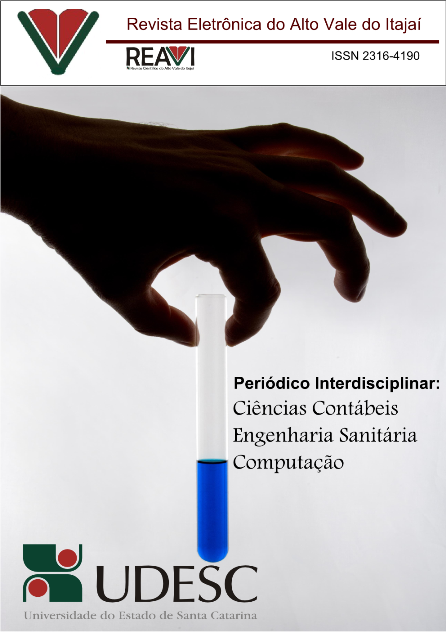A aceitação do MOODLE na educação a distância: uma aplicação do modelo conceitual UTAUT
DOI:
https://doi.org/10.5965/2316419003042014040Palavras-chave:
modelo conceitual UTAUT, aceitação da tecnologia, adoção de TIResumo
Aplicou-se nesta pesquisa o modelo Unified Theory of Acceptance and Use of Technology (UTAUT) de Venkatesh et al. (2003) buscando verificar efeitos de fatores influenciadores da Intenção de Uso e o Uso Real da plataforma Moodle no ensino a distância. A amostra da pesquisa corresponde a 1.370 questionários válidos, de um universo de 300.000 sujeitos que utilizam ou utilizaram o Moodle no Brasil. A análise dos dados foi feita por meio de modelagem de equações estruturais, mínimos quadrados generalizados e do método de reamostragem Jackknife para identificar o efeito entre variáveis. Como o UTAUT exige muitos parâmetros, concluiu-se que o modelo pode estar saturado. A pouca variabilidade nas respostas sugere que mais investigações sejam realizadas.
Downloads
Referências
ALBERTIN, A. L.; BRAUER, M. Resistência à educação a distância na educação corporativa. Revista de administração pública. vol:46 iss:5 p.1367, 2012.
AJZEN, I. The Theory of Planned Behavior. Organizational behavioral and human decision processes, 1991
BAUTZER, D. Inovação: repensando as organizações. São Paulo: Atlas, 2009
DAVIS, F. D.; BAGOZZI, R.P.; WARSHAW, P.R. User acceptance of computer technology: a comparison of two theoretical models. Management Science, 1989
EVAL AND GO. Online Software, questionnaire tool & market research platform. Eval&Go. Evalandgo, Copyright, 2013. Disponível em: <http://www.evalandgo.com/>.
FISHBEIN, M.; AJZEN, I. Attitudes towards objects as predictors of single and multiple behaviorial criteria. Psychological Review, Vol 81(1), Jan, 59-74, 1974
MORAN, J. M. A educação superior a distância no Brasil. São Paulo: USP, 2002. Disponível em <http://www.eca.usp.br/moran/EaDsup.htm> Acessado em 18 jun. 2013
PATRAKOSOL, B.; OLSON, D.L. How interfirm collaboration benefits IT innovation. Information & Management, 2007
PULINO FILHO, A.R. Manual MOODLE. Versão 1.0, Brasília, 2009
RAMOS, A. S. M.; OLIVEIRA, B. M. K. Diferenças de Gênero na Aceitação de um Ambiente Virtual de Aprendizado: um estudo com graduandos do curso de Administração na modalidade a distância. Revista Ibérica de Sistemas e Tecnologias de Informação (RISTI), N.º 5, 6/2010.
ROGERS, E. M. Diffusion of innovations. New York: The Free Press, 2003
SILVA COGO, G. Análise da intenção de adoção da computação em nuvem por profissionais da área de TI. Dissertação de Mestrado (109 f.). Universidade Federal do Rio Grande do Sul. Programa de Pós-Graduação em Administração. Porto Alegre. 2013.
STEVENS, S. S. On the Theory of Scales of Measurement. Science, New Series, Vol. 103, n. 2684 (Jun. 7, 1946), pp. 677-680.
VENKATESH, V.; MORRIS, M.G.; DAVIS, G.B.; DAVIS, F.D. User acceptance of information technology: toward a unified view. MIS Quarterly, 2003
VENKATESH, V.; DAVIS, F. D. A theoretical extension of the technology acceptance model: Four longitudinal field studies. Management Science, 2000
VENKATESH, V. Determinants of perceived ease of use: Integrating control, intrinsic motivation, and emotion into the technology acceptance model, Information systems research, 2000.
VENKAESH, V.; THONG, Y.L.J. XU, X. Consumer acceptance and use of information technology: extending the unified theory of acceptance and use of technology, Forthcoming in MIS Quarterly, 2012.
Downloads
Publicado
Como Citar
Edição
Seção
Licença
Copyright (c) 2015 JOSIVANIA SILVA FARIAS, DANILO SANTANA PEREIRA, PEDRO H.MELO ALBUQUERQUE, MATEUS DE SOUSA MARTINS

Este trabalho está licenciado sob uma licença Creative Commons Attribution 4.0 International License.














